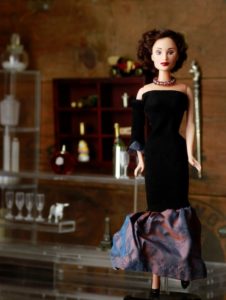Sex Doll Owners and Contact Offenses: Correlation?

Investigating Psychological Characteristics and Risky Thinking in Sex Doll Owners
Here we go again: Another article on sex doll owners!
This post contains affiliate links. The author or blog owner may earn a commission if you make a purchase using these links.
Yes, I continue to be fascinated by the research on this topic.
Despite what some might believe, discussions come up about it in my line of work. Even at the workshop I taught for law enforcement officers last month.
Of course, when I saw this article, published this year, I was excited to read it.
Previous research articles I have written about on sex doll ownership have been more general in nature. This isn’t surprising given the lack of even basic research on the topic. This article, however, actually digs into the main questions about the ownership of sex dolls.
Law enforcement, treatment providers and legislators want to know:
Is there any association between owning sex dolls and risk of contact sexual offending?

Do you believe your sexual behaviors are compulsive or harmful to you or others? Then you should take the CSBD-19 free, validated self-assessment tool.
A Quick Recap
The study was published in The Journal of Sex Research by academics at Nottingham Trent University. It sought to address whether or not there was any relationship between owning adult sex dolls and either personality characteristics of the owners or any offending supportive beliefs.
First to recap: There are three main schools of thought when it comes to sex doll ownership.
- Owning a sex doll increases risk as it can reinforce the objectification of women. Those in this school of thought point to the research that tells us that having views of women as sexual objects is associated with higher levels of sexual aggression. The hypothesis here is that owning a sex doll increases a person’s negative attitudes towards women and objectification of women which leads to a higher risk of sexual aggression. (While sex dolls do come in all genders, the literature on the topic focuses on women and female sex dolls).
- Sex doll ownership is protective, meaning that owning a sex doll actually could reduce sexual aggression against live humans. These individuals could reduce their sexual aggression risk by acting out those desires with a sex doll.
- The final group does not look at sex doll ownership as increasing or decreasing risk. It looks at the functions that sex dolls can serve to their owners. Some owners of sex dolls report that the doll is a surrogate for a relationship. Perhaps sex doll owners have had difficult relationships in the past or have particular sexual interest which would make relationships difficult. The doll can serve as a physical and, sometimes, emotional surrogate.
Are you looking for more reputable, data-backed information on sexual addiction? The Mitigation Aide Research Archive is an excellent source for executive summaries of research studies.

The Study
This study looked to assess whether there were any particular psychological characteristics of sex doll owners. They also tested the assumption that doll ownership could be associated with a propensity for sexual aggression.
The participants were found in a sex doll ownership forum. A control group was found online through a survey platform called Prolific.
Participants answered questions about:
- Demographics
- Doll ownership
- Psychological assessments that looked at:
- Sexual aggression
- Sexual fantasies
- Offense supportive thinking
- Emotional functioning
- Personality style
- Attachment style
In this study, they used male doll owners in the statistical analysis.

Are you a professional looking to stay up-to-date with the latest information on, sex addiction, trauma, and mental health news and research? Or maybe you’re looking for continuing education courses?
Stay up-to-date with all of Dr. Jen’s work through her practice’s newsletter!
The Results
The study found that doll owners were slightly older than non-doll owners. Sex doll owners were a little less likely to have partnered sex at least monthly.
Other than that, there were very few other differences between the doll owners and non-doll owners overall.
Doll owners did not:
- Fantasize more about coercive sex
- Have more of a proclivity for sexual aggression
- Have issues with emotion and attachment

Interested in more information about sex dolls and their owners? Here’s all of our posts about them:
Doll owners were, however, significantly more likely:
- To view women as sex objects
- Have greater sexual entitlement
- To see women as unknowable
Overall the results indicated that, in this study population, doll ownership did not appear to be associated with proclivities for sexual offending.
Doll owners were not more likely to be sexually aggressive or endorse sexual aggression.
In contrast, the data suggested that doll ownership was a potentially protective factor when the owner did not have the beliefs that male sex drive is uncontrollable or that the world is a dangerous place.
The authors suggested that:
“The lack of differences between the two groups in this study might suggest that studying sex doll ownership through a lens that assumes psychopathology or atypicality might be misguided.”
Are you a Licensed Professional Counselor in need of continuing education? Learn more about Sex Addiction, Erotic Conflict, and Moral Incongruence from Dr. Weeks and Sexual Addiction Treatment Services, an NBCC ACEP™ approved provider!
Sexual Addiction Treatment Services has been approved by NBCC as an Approved Continuing Education Provider, ACEP No. 7250. Programs that do not qualify for NBCC credit are clearly identified. Sexual Addiction Treatment Services is solely responsible for all aspects of the programs.

Take Aways
Any study has its limitations.
This study only looked at individuals who owned adult sex dolls.
It did not address the issue of childlike sex doll ownership. This makes it possible that the data for adult sex doll ownership does not necessarily generalize to individuals who own child like sex dolls.
Regardless of its limitations, this study is important because it is the first that attempts to address the specific legal and ethical questions about sex doll ownership. In particular: Does ownership of sex dolls increase a person’s likelihood of committing an hands-on sexual offense?
Much further research is needed before any definitive statements can be made.
Reference: Harper, C.A., Lievesley, R., & Wanless, K (2023). Exploring the Psychological Characteristics and Risk-related Cognitions of Individuals Who Own Sex Dolls. The Journal of Sex Research, https://doi.org/10.1080/00224499.2022.2031848
This post contains affiliate links. The author or blog owner may earn a commission if you make a purchase using these links.

Have you found yourself in legal trouble due to your sexual behavior? Seek assistance before the court mandates it, with Sexual Addiction Treatment Services.
Do you feel your sexual behavior, or that of someone you love, is out of control? Then you should consult with a professional.


